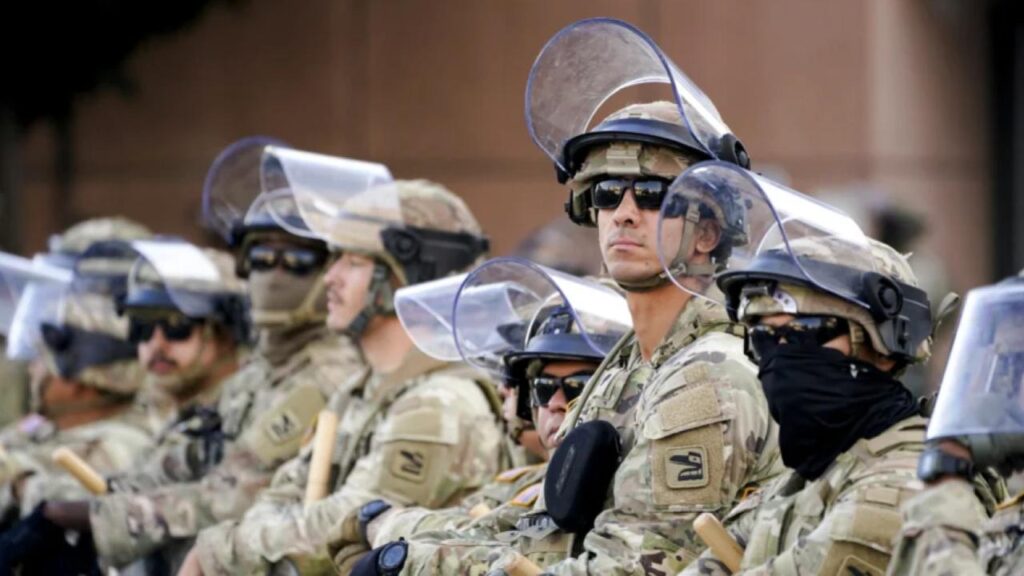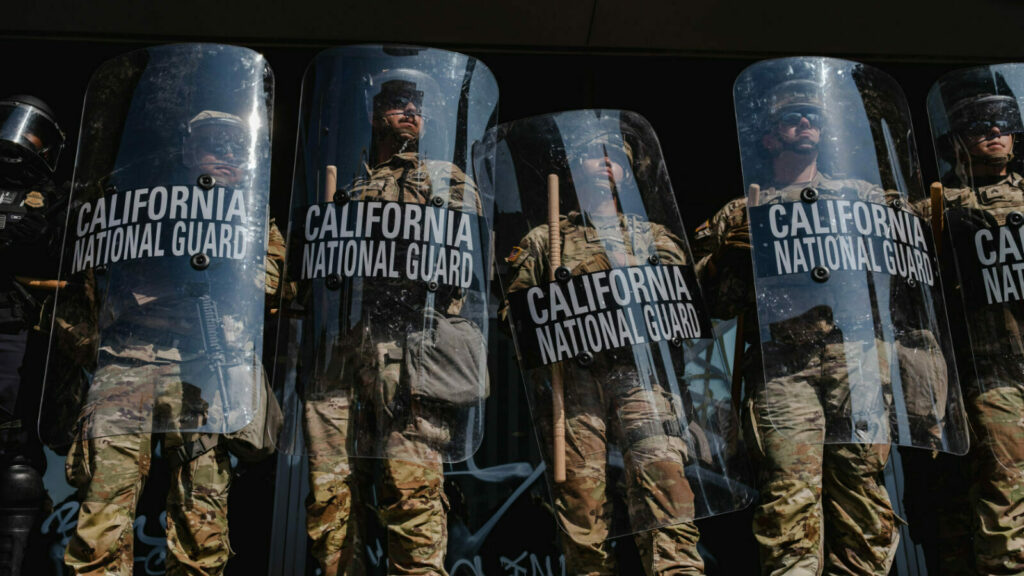You won’t believe it — a federal appeals court just handed former President Trump a surprise win, keeping roughly 4,000 National Guard troops firmly under federal control in Los Angeles. In this article, we break down the clash over state vs. federal power, unpack what’s at stake for civil liberties and immigration policy, and explain why this unprecedented ruling could reshape the legal playbook going forward.

Trump Can Keep National Guard in Los Angeles
| Insight | Stat |
|---|---|
| Split public opinion | 48% support, 41% oppose |
| First federalized Guard since 1965 | Triggered under Insurrection Act |
| 4,000 Guard + 700 Marines deployed | In response to immigration-related protests |
This appellate court move is more than procedural—it reshapes the framework for federal vs. state control, civil-military relations, and the handling of domestic dissent, especially concerning immigration policy. As legal and public battles play out, this case could set a lasting precedent for future deployments of military forces on American soil.
What the Court Said
On June 19, 2025, the Ninth U.S. Circuit Court of Appeals issued a unanimous ruling by a three-judge panel (including Trump appointee Mark J. Bennett), pausing a lower court’s order that would have returned control of California’s National Guard to Governor Gavin Newsom. The appellate court agreed that, under existing statutory precedent—including the Insurrection Act and longstanding judicial deference—the President likely acted within his authority.
The decision emphasizes that while the court can still review Trump’s deployment, it must grant significant discretionary leeway to the President regarding national security judgments.
Legal Groundwork: What’s Being Debated
Presidential vs. State Authority
Trump invoked Title 10 (the Insurrection Act), authorizing federalization of the Guard when a “rebellion” threatens enforcement of U.S. law. Legal scholars note courts have historically shown strong deference to such presidential decisions.
Constitutional Concerns
California argued the deployment trampled the Tenth Amendment and anti-commandeering principles (New York v. U.S., Printz v. U.S.), contending the situation didn’t rise to the level of insurrection.
Posse Comitatus Red Flags
Deploying active-duty Marines into civilian areas prompted constitutional concerns via the Posse Comitatus Act, though the government claimed an exception under Insurrection Act and said troops were primarily guarding federal installations.
Why It Matters
- Historical precedent: This marks the first unilateral federalization of a state National Guard without consent from a governor since 1965.
- Public split: A Reuters/Ipsos poll (June 11–12) found Americans were evenly divided—48% in favor, 41% opposed. Californians leaned opposition, with 58% dissenting.
- Wider implications: The ruling signals extraordinary presidential authority in imposing military force during domestic unrest, shifting dynamics around immigration enforcement, protest policing, and executive power.

US Political Fallout & Reactions
- Democratic leaders: Senator Alex Padilla and House Democrats called the move unprecedented and risky, particularly after Padilla was forcibly removed from a federal press conference on June 12.
- Republican lawmakers: Many applauded Trump’s assertion of federal authority; some, including Sen. Susan Collins, voiced concern over active-duty troops on U.S. streets.
- Local officials: Governor Newsom and L.A. Mayor Karen Bass slammed the deployment, saying it inflamed tensions and violated state sovereignty.
What’s Next?
- Ongoing litigation: The case continues in district court. The appeals court has only issued a temporary stay while the parties finalize arguments .
- March hearing and final ruling: A full hearing scheduled for next Tuesday could deepen or restrain presidential power.
- Potential Supreme Court review: Either side may appeal—this legal battle could land before the Supreme Court, potentially redrawing the boundaries of federal executive authority.
Anecdote from the Ground
I spoke with a Marine stationed outside the Wilshire Federal Building who told me, “We’re following orders—and watching closely. Nobody here thought we’d see U.S. troops in uniform on civilian sidewalks again.” That’s how surreal this moment feels—even to the servicemembers.
FAQs
Can a president deploy the National Guard without the governor’s permission?
Yes under the Insurrection Act (Title 10 § 252), the President may federalize the Guard during rebellion or violence preventing enforcement of U.S. law—even over a governor’s objection.
How long can the Guard stay under federal control?
Until the underlying case (Newsom v. Trump) is resolved. The current hold is temporary while courts determine the lawfulness of the original deployment order.
What’s the Posse Comitatus Act?
A law that bans active-duty federal personnel from performing civilian policing activities unless authorized by statute, such as the Insurrection Act.






